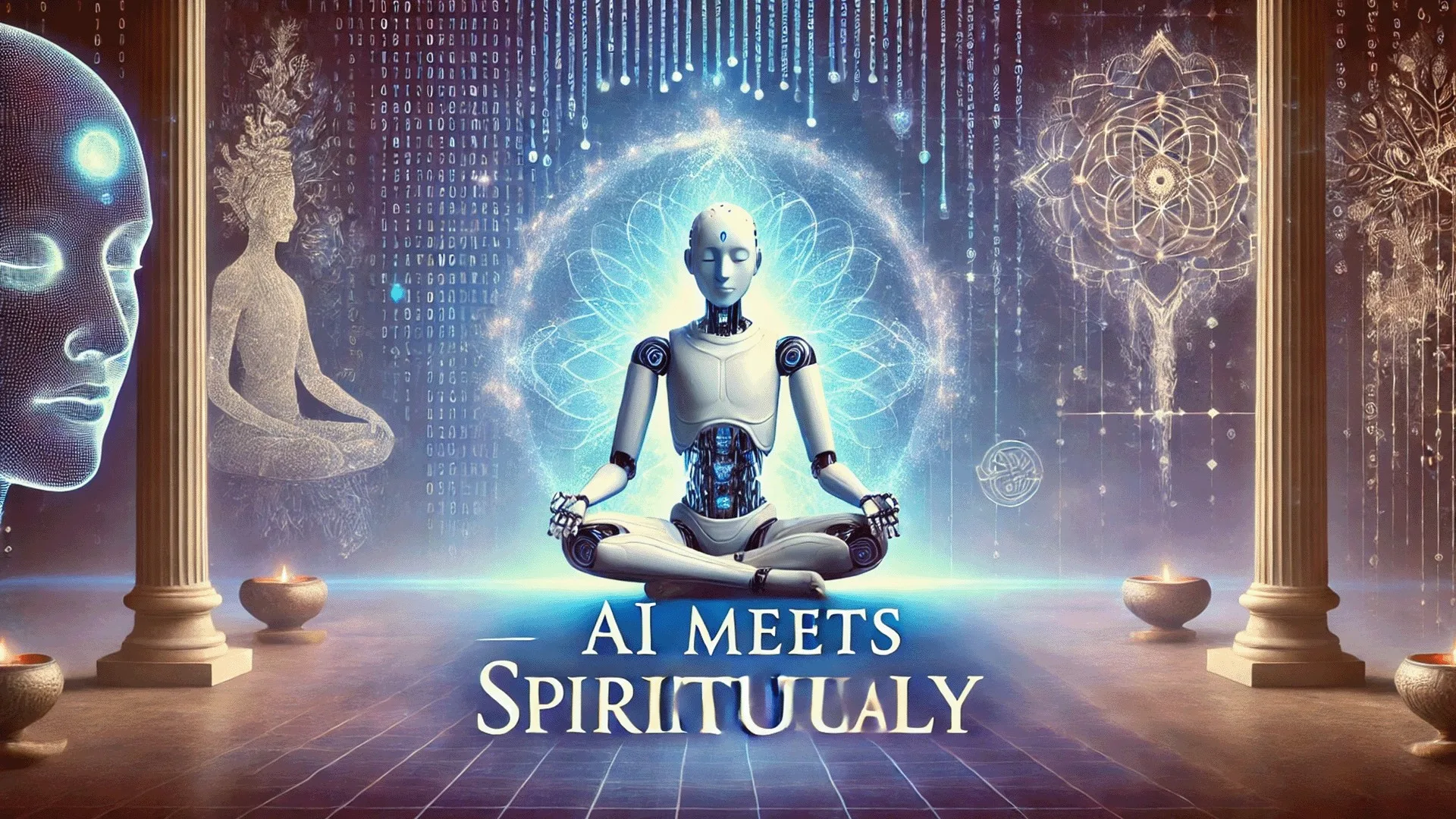In the rapidly evolving landscape of technology, artificial intelligence (AI) has emerged as a transformative force, touching almost every aspect
In the rapidly evolving landscape of technology, artificial intelligence (AI) has emerged as a transformative force, touching almost every aspect of human life, from healthcare and finance to education and entertainment. But beyond these familiar territories, a provocative question has surfaced: Can AI help bridge the gap between humans and the spiritual world? This exploration dives deep into the possibilities, challenges, and implications of using AI as a tool to facilitate spiritual experiences.
Understanding the Concept of Spiritual Connection
The desire to connect with the spiritual realm is as old as humanity itself. From the whispered prayers of ancient civilizations to the meditative practices of modern seekers, humans have long sought ways to bridge the tangible and the intangible. Spiritual experiences, often marked by feelings of transcendence, unity, and profound insight, are deeply personal and difficult to quantify. But can a technology built on code, algorithms, and data processing tap into something so inherently mystical?
The Intersection of AI and Spirituality
AI is already redefining many facets of life, but its role in spirituality is particularly intriguing. To better understand this, we need to look at current applications and theoretical ideas about how AI can become intertwined with spiritual pursuits.
1. AI as a Tool for Meditation and Mindfulness
One of the most practical applications of AI in spirituality is through meditation and mindfulness. AI-driven apps, equipped with natural language processing and deep learning algorithms, can craft personalized meditation sessions tailored to a user’s emotional and physical state. These apps often incorporate guided breathing exercises, calming music, and visualizations that promote relaxation.
Case Study: Consider the AI-powered meditation apps that use real-time feedback to customize meditation scripts. These programs can adapt to the user’s voice and tone, sensing stress or agitation, and altering their guidance to help the user reach deeper levels of relaxation. For some, these moments of tranquility border on the spiritual, leading to feelings of enlightenment or oneness.
2. AI as a Medium for Spiritual Communication
The idea of communicating with spiritual guides or ancestors through technology has long been relegated to the realm of science fiction. However, with advancements in machine learning and natural language processing, AI-driven chatbots have begun mimicking human interactions so convincingly that they can evoke deep emotional responses.
Experimental Projects: Some researchers have experimented with AI that simulates interactions with famous spiritual figures or ancestors. These AI models are trained using extensive data to replicate the speech patterns, beliefs, and mannerisms of historical or spiritual icons. Although these programs do not bridge any metaphysical gap, they raise compelling questions about authenticity, spirituality, and the human desire for connection.
Can AI Decode Spiritual Phenomena?
Beyond simulating interactions, AI could be used to analyze spiritual experiences in more empirical ways. For example, what if AI could study the neurological patterns that occur during meditation or deep prayer?
Research Potential: Machine learning algorithms can be applied to large datasets from studies involving meditation practitioners or religious ceremonies, identifying patterns in brain activity and physiological responses. This analysis might uncover commonalities that align with the experiences people describe as “transcendent” or “divine,” helping scientists and spiritualists alike better understand the nature of these states.
Check out how Robot Revolution can benefit your daily life, click here to find more.
Current Examples and Experiments in the Field
Virtual Mediums and AI-Enhanced Communication
Startups and researchers have begun experimenting with AI-powered platforms that simulate mediumship. These systems use a combination of sentiment analysis, machine learning, and natural language processing to deliver messages that resonate with users seeking comfort or spiritual guidance.
Real-World Example: A chatbot programmed to emulate a comforting spiritual guide could offer words of solace, tapping into a vast library of human emotions and responses. While the interaction is purely digital, the emotional impact on the user can be profound. This blend of psychology and technology raises both intrigue and concern, as users might attribute more depth or meaning to the interactions than is truly warranted.
AI-Powered Dream Interpretation
Dreams have always been an enigmatic aspect of human experience, with some traditions viewing them as messages from a higher realm. AI could revolutionize the way we interpret dreams by analyzing patterns using advanced deep learning models.
How It Works: AI can process dream logs and look for recurring symbols or themes, drawing connections that might elude human analysis. This could help individuals see spiritual messages or insights embedded in their subconscious.
Ethical Considerations: The Thin Line Between Guidance and Manipulation
The potential for AI to simulate spiritual experiences invites a range of ethical questions. How authentic are these interactions, and how much weight should users place on AI-generated advice? The psychological impact of AI-driven “spiritual” experiences must be carefully considered, especially as more people turn to digital tools for comfort and connection.
Key Ethical Issues to Consider:
- Authenticity: Can a machine truly simulate a spiritual connection, or is it simply manipulating data to give an illusion of depth?
- Dependence: Could users become overly reliant on AI for spiritual guidance, potentially alienating themselves from traditional practices or personal introspection?
- Consent and Psychological Safety: How can developers ensure that users are fully informed about the nature of their interactions with AI, especially when discussing sensitive topics like grief or personal beliefs?
The Future of AI in the Spiritual Realm
As technology continues to evolve, the convergence of AI and spirituality will likely deepen. Here are a few potential paths that AI’s role in spirituality might take:
1. Augmented Spiritual Practices
AI could serve as a supplement to traditional spiritual practices. For example, AI could offer personalized mantras or create unique visual and audio experiences that help deepen meditation or prayer sessions. This could act as a bridge for those who struggle to reach states of mindfulness on their own.
2. Enhanced Community and Sharing
AI-driven platforms could create spaces where individuals share and discuss their spiritual experiences, with AI acting as a facilitator that curates and highlights content, promotes discussions, and even offers support. The sense of community fostered by such platforms might mimic the experience of a spiritual gathering or support group.
3. Analyzing and Expanding Human Understanding of Mystical States
Machine learning and AI tools could continue to help researchers analyze the physiological and neurological components of spiritual states, thereby contributing to the scientific understanding of spirituality. This, in turn, could help debunk myths, confirm ancient beliefs, or even reveal new aspects of human consciousness.
Conclusion: A Tool, Not a Replacement
The possibility of using AI as a bridge to the spiritual world provokes more questions than answers. While AI can undoubtedly serve as an augmentative tool to foster introspection, facilitate meditation, or analyze spiritual phenomena, it is unlikely to ever replace the genuine human quest for the divine or transcendence.
For now, AI may amplify our understanding and experience of spirituality, providing novel ways to engage with the unknown. But the ultimate connection to the spiritual realm will likely remain a deeply human pursuit, rooted in personal belief, experience, and the age-old search for meaning.
Check out how Robot Revolution can benefit your daily life, click here to find more.


